Learn English
Tai Chi for English Learners: Sharpen Focus & Mindfulness
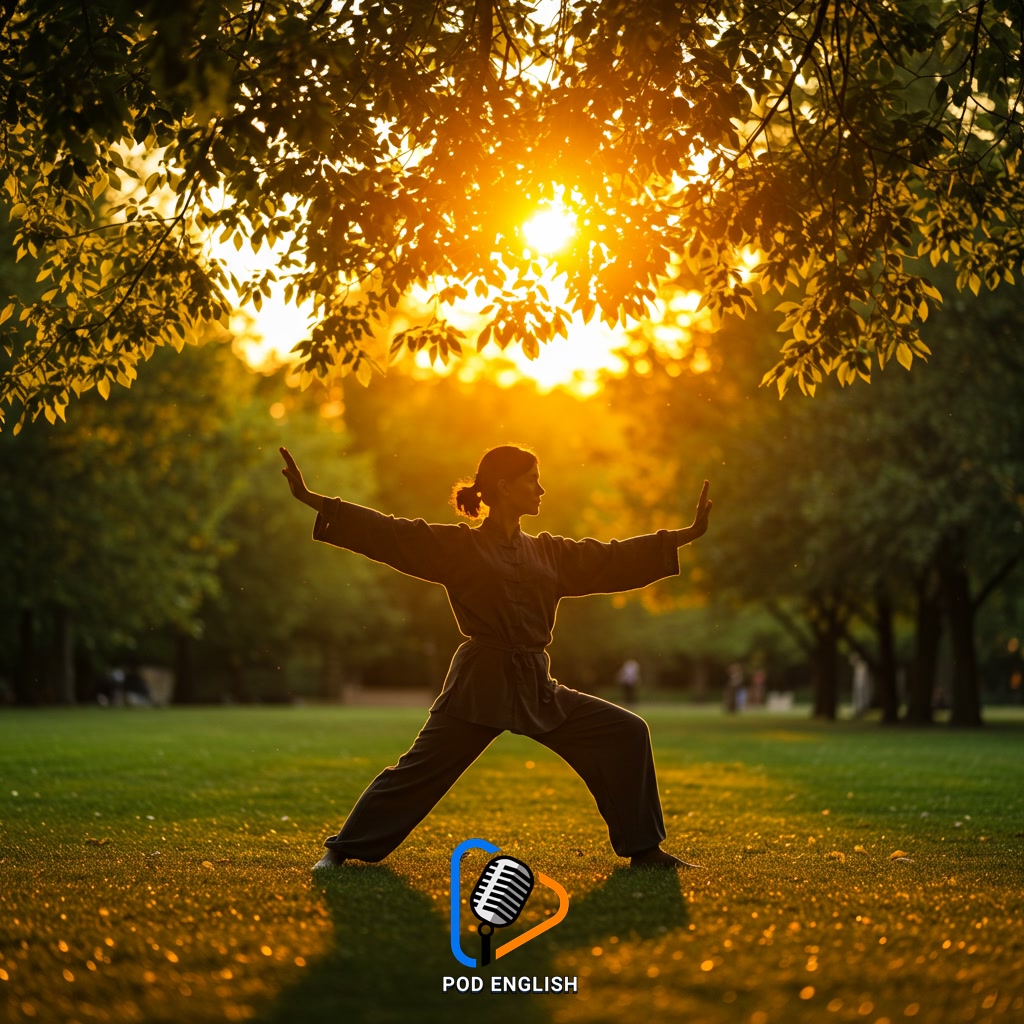
Tai Chi offers unique benefits for individuals engaged in learning English. Practicing Tai Chi techniques can effectively enhance concentration and cultivate mindfulness. These improvements in focus and awareness are valuable assets for anyone on their journey of learning English. This approach explores how integrating physical movement and mental discipline can support language development.
Table of Contents
- Section 1: Introduction: Tai Chi, Focus, and English Learning
- Section 2: Understanding Tai Chi: Principles and Practice
- Section 3: The Power of Focus and Mindfulness in Learning English
- Section 4: How Tai Chi Enhances Focus and Mindfulness for Learners
- Section 5: Integrating Tai Chi Practices into Your English Study Routine
- Section 6: Practical Exercises: Simple Tai Chi for Daily Practice
- Section 7: Conclusion: A Holistic Approach to Mastering English
Section 1: Introduction: Tai Chi, Focus, and English Learning
Welcome to our guide exploring the surprising connection between practicing Tai Chi and improving your English learning journey. Learning English effectively requires strong focus and the ability to stay present with the material, whether you are reading, listening, or speaking. Often, distractions make it hard to concentrate, slowing down progress. Tai Chi is an ancient practice known for its slow, deliberate movements and emphasis on mindful awareness. By engaging both the body and mind, Tai Chi helps train your ability to focus and maintain a calm, present state. This enhanced focus and mindfulness developed through Tai Chi can be a powerful tool, directly supporting your concentration when tackling complex English grammar, understanding fast speech, or remembering new vocabulary. Let’s discover how this gentle exercise can sharpen your mind for language learning.

Introduction: Tai Chi, Focus, and English Learning
Section 2: Understanding Tai Chi: Principles and Practice
Tai Chi is a traditional Chinese practice often described as moving meditation. It involves a series of slow, gentle, and flowing movements, combined with deep, focused breathing. The core principles emphasize relaxation, balance, proper posture, and continuity of motion. Unlike strenuous exercise, Tai Chi is performed calmly and deliberately, requiring practitioners to maintain awareness of their body and breath throughout the sequence. This focus on internal calm and external grace is fundamental to understanding Tai Chi, making it not just a physical activity but also a mental discipline that cultivates tranquility and centeredness.
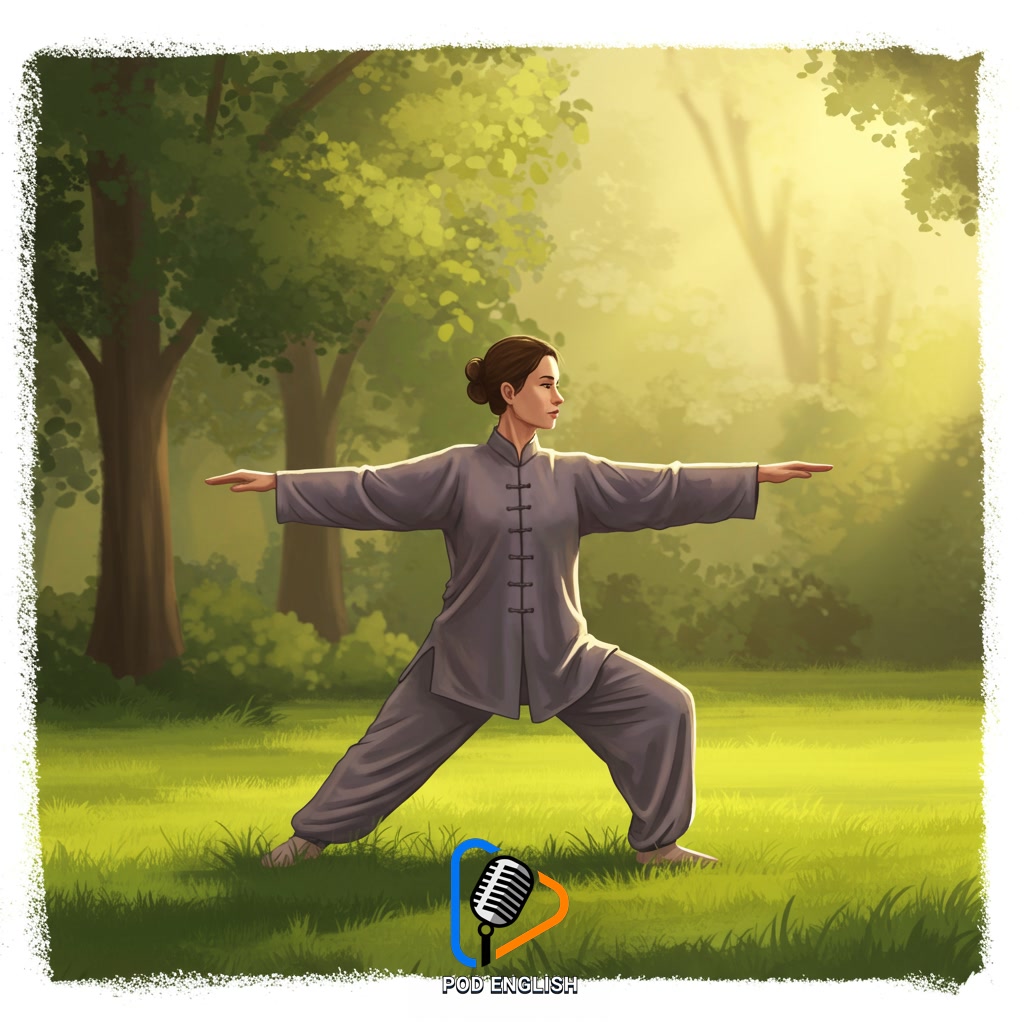
Understanding Tai Chi: Principles and Practice
Section 3: The Power of Focus and Mindfulness in Learning English
Learning English effectively requires more than just memorizing vocabulary and grammar rules; it demands consistent focus and a mindful approach. When learners can concentrate fully, they absorb new information more efficiently, understand complex sentence structures, and retain what they learn for longer. Mindfulness, which involves being fully present in the moment without distraction, helps learners notice subtle nuances in pronunciation, understand cultural contexts, and manage the frustration that can sometimes arise during the learning process. By cultivating a focused and mindful state, English learners can transform their study sessions into more productive and engaging experiences, ultimately accelerating their progress towards fluency.

The Power of Focus and Mindfulness in Learning English
Section 4: How Tai Chi Enhances Focus and Mindfulness for Learners
Tai Chi’s practice cultivates enhanced focus and mindfulness through its emphasis on slow, deliberate movements and conscious breathing. As learners move through the forms, they are encouraged to pay close attention to their body’s position, balance, and the flow of their breath. This continuous act of present-moment awareness trains the mind to resist distraction and stay centered. For an English learner, this translates directly into improved ability to concentrate during study sessions, whether listening to audio, reading complex texts, or practicing speaking. The cultivated mindfulness helps them become more aware of subtle nuances in language, pronunciation, and grammar, making the learning process more efficient and effective.
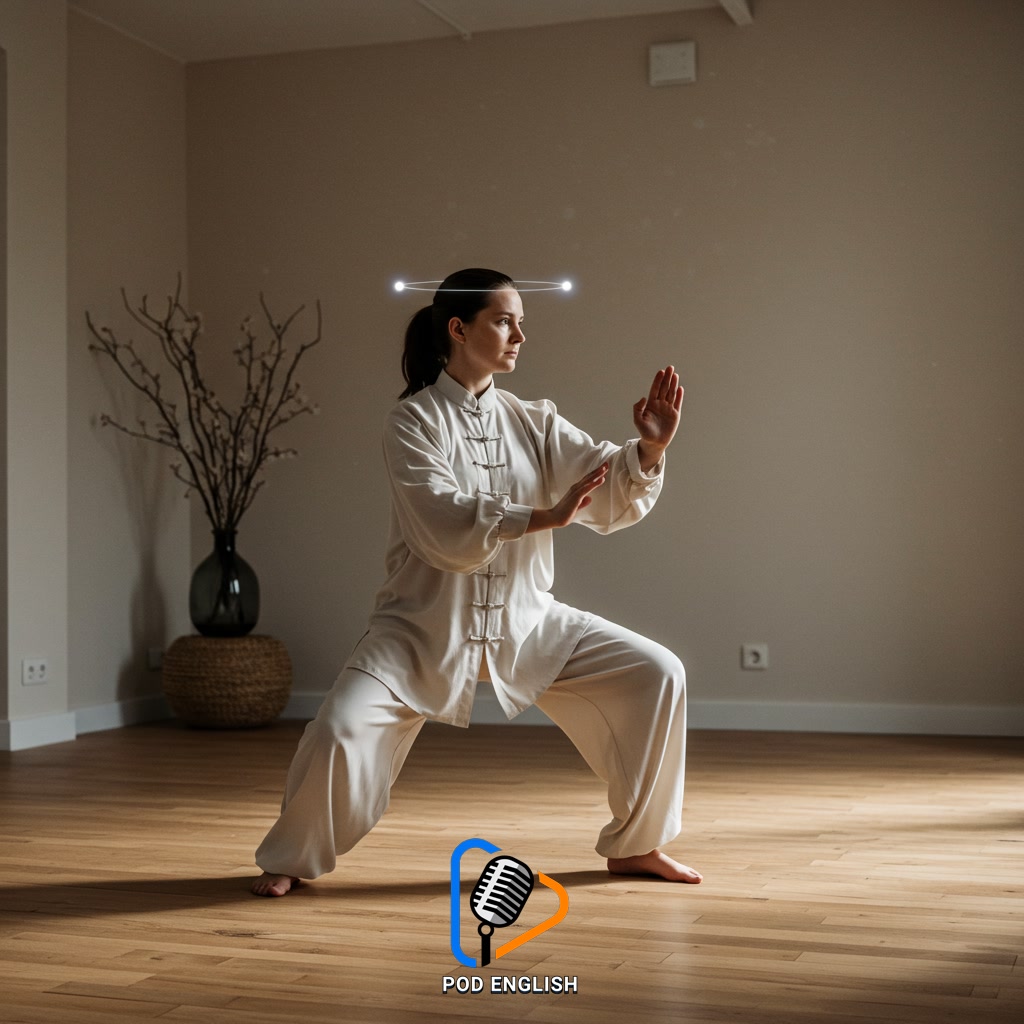
How Tai Chi Enhances Focus and Mindfulness for Learners
Section 5: Integrating Tai Chi Practices into Your English Study Routine
Building on Tai Chi’s ability to improve focus and mindfulness, this section explores practical ways to weave these benefits into your English learning journey. Consider starting your study sessions with a brief Tai Chi form or a few minutes of mindful breathing learned through the practice. This can help calm the mind and prepare it for focused learning. During study breaks, instead of just checking your phone, perform a simple Tai Chi movement or a short breathing exercise to refresh your concentration. Find a quiet space where you can comfortably practice a few movements before opening your English book or starting an online lesson. By consciously linking your Tai Chi practice with your study routine, you train your mind to bring that same calm, alert awareness to the task of mastering English vocabulary, grammar, and comprehension. This integration helps make your study time more effective and less stressful.
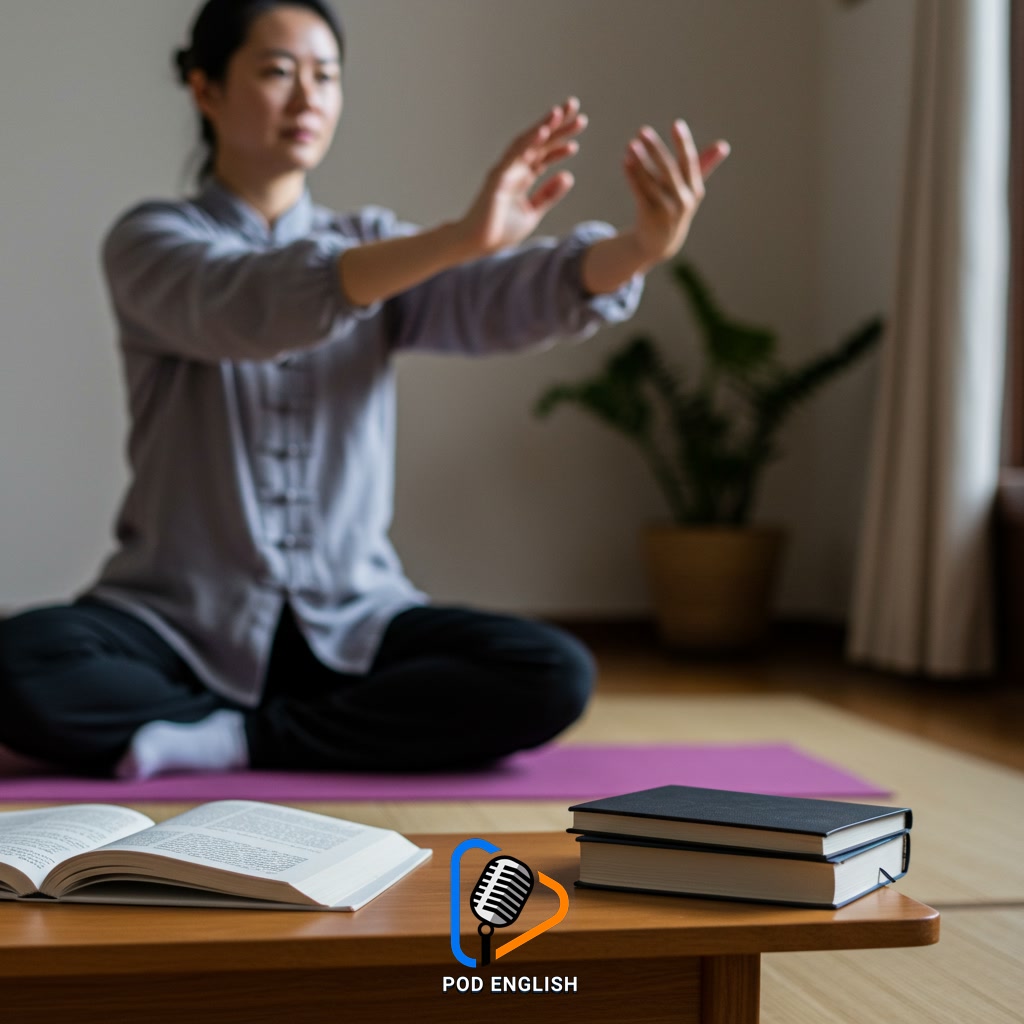
Integrating Tai Chi Practices into Your English Study Routine
Section 6: Practical Exercises: Simple Tai Chi for Daily Practice
Building on Tai Chi’s ability to improve focus and mindfulness, this section explores practical ways to weave these benefits into your English learning journey. Consider starting your study sessions with a few minutes of simple Tai Chi. You don’t need complex forms; even basic movements like gentle swaying, arm circles, or shifting weight can be highly effective. The key is to move slowly and deliberately, paying close attention to your breath and the sensations in your body. This simple practice helps calm a busy mind, release physical tension, and bring your awareness into the present moment. By cultivating this state of relaxed focus through these easy daily exercises, you prepare your brain to absorb and process new English vocabulary and grammar more effectively, making your study time more productive and enjoyable.
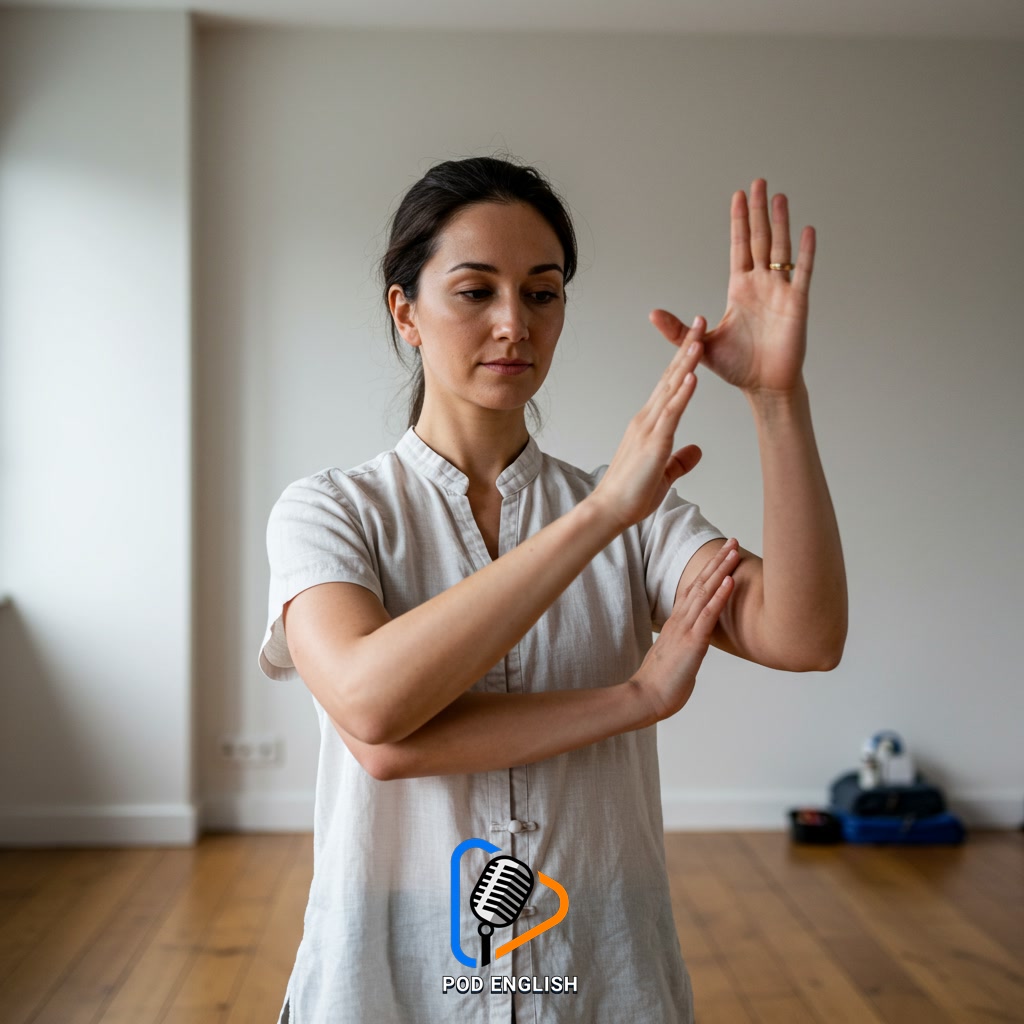
Practical Exercises: Simple Tai Chi for Daily Practice
Section 7: Conclusion: A Holistic Approach to Mastering English
In conclusion, integrating Tai Chi into your routine offers a truly holistic pathway to mastering English. Beyond just improving physical health, the core principles of Tai Chi—cultivating focus, mindfulness, and inner calm—directly address common challenges faced by language learners, such as distraction, frustration, and anxiety. By practicing Tai Chi, you develop the mental discipline needed to concentrate during study sessions, to remain present and absorb new information, and to approach speaking opportunities with less self-consciousness. This mind-body connection fosters a more receptive and resilient state, making the complex process of acquiring a new language feel more manageable and even enjoyable. Embracing Tai Chi is not just adding an exercise; it’s adopting a supportive lifestyle that enhances your cognitive abilities and emotional well-being, ultimately accelerating your English learning journey.

Conclusion: A Holistic Approach to Mastering English













